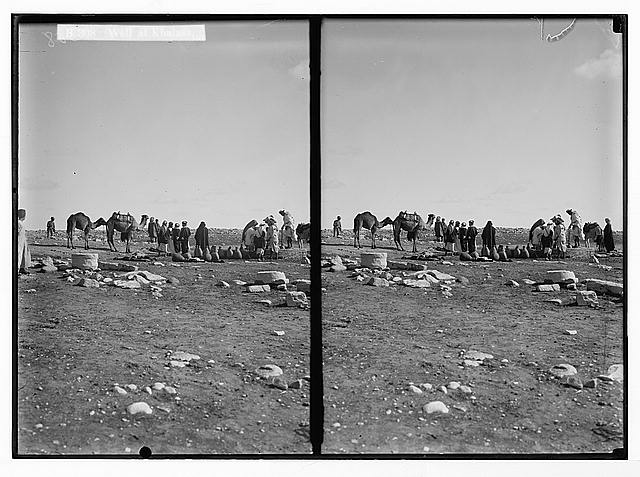
Look closely at this image of a well.
The following activities and questions are designed to help your students use their noticing skills to move through the poem and develop their thinking skills so they understand its meaning with confidence, using what they’ve noticed as evidence for their interpretations. Read more about the framework upon which these activities are based.
-
Warm-up: What does myth mean to you? Are there any myths in your life that are important to you and/or your family or heritage? Why?
-
Before Reading the Poem: Look closely at this image of a well. What do you notice? What stands out? Why? Look again. What else do you see? What is the purpose of a well?
-
Reading the Poem: Silently read the poem “I Didn’t Apologize to the Well” by Mahmoud Darwish. What do you notice about the poem? Note any words or phrases that stand out to you or any questions you might have.
-
Listening to the Poem: Enlist two volunteers and listen as the poem is read aloud twice, and write down any additional words and phrases that stand out to you. Or, you may opt to watch a video of the poem being read by Kaveh Akbar.
-
Small Group Discussion: Share what you noticed about the poem with a small group. How does the poem connect to the image and your discussions from the beginning of class? How might you describe the speaker in the poem? Why?
-
Whole Class Discussion: What do you think of the line, “I broke the myth and I broke”? Thinking back to what you shared earlier, what happens when a myth breaks? What happens when a person breaks? What does this poem say about oppression and/or exile? Why?
-
Extension for Grades 7-8: Write a creative response to this poem that explores your ideas about myth. What happens for you, your family, and/or your community when a myth breaks? What myths are necessary to break and which are worth keeping? Your response might be a poem, a song, a collage, or or your own idea. Share your writing with the class and discuss what came up for you in the process of creating this piece.
-
Extension for Grades 9-12: In honor of National Arab American Heritage Month, read more about Mahmoud Darwish, the esteemed Palestinian poet. You can find more of Darwish’s poems, as well as explore poets writing about exile.
Teach This Poem was developed for in-person classrooms, but it can be easily adapted for remote learning and hybrid learning models. Please see our list of suggestions for how to adapt this lesson for remote or blended learning.
To celebrate Arab American Heritage Month in April—and the rich tradition of Arabic poetry all year long—browse this selection of poems by classic and contemporary poets.
